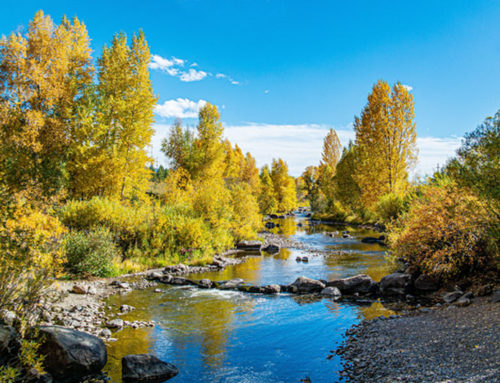State Continues to Pursue Costly State Dredge and Fill Legislation Despite Stay of Federal Waters of the United States Rule
On June 19, 2020, Judge William Martinez of the U.S. District Court for the District of Colorado entered an administrative stay of the recently issued federal Clean Water Act (“CWA”) “navigable waters protection rule” (the “new federal rule”). The new federal rule narrows the scope of waterways that fall within the regulatory jurisdiction of the federal government. The State of Colorado sought an injunction of the new federal rule, claiming in part that the “dramatic reduction” in CWA jurisdiction would deprive the state of “effective tools to keep its streams and wetlands clean,” because the definition of water subject to regulatory protection under the federal rule is much narrower than the State’s definition of regulated “state waters.” According to the State, approximately 50% of state waters would be left unprotected from potentially damaging dredge and fill activities associated with development, water projects, and other activities. The stay prevents the new federal rule from taking effect and preserves the status quo in Colorado, at least for now. The Department of Justice has appealed the stay, and there is a possibility, although unlikely, it could be lifted in the near future.
On a parallel path, the Colorado Department of Public Health and the Environment (“CDPHE”) proposed draft legislation during this year’s legislative session to address the gap between the new federal rule and the Colorado state waters definition. The draft legislation would have given CDPHE authority to regulate the “gap” or “disputed” waters, as coined by CDPHE, including requiring regulated entities to potentially seek both federal and state permits for projects impacting state waters. The legislation was never formally introduced before the end of the legislative session, but CDPHE has organized a stakeholder process to consider the legislation with an eye on the 2021 legislative session.
Interestingly, as part of comments to the U.S. Environmental Protection Agency on the draft federal rule, Governor Polis and Attorney General Weiser acknowledged that implementation of its own regulatory program to regulate the disputed waters would cost the state “millions of dollars for new permitting and mitigation programs” and “take years” to implement. In fact, it is this point that Judge Martinez seized on in support of issuing the stay, finding that Colorado would suffer irreparable injury (a criteria for granting injunctive relief) if the federal rule went into effect based on its need to increase enforcement efforts and incur unrecoverable costs to ensure that dredge and fill activities were not being undertaken in the disputed waters. Even though the threat of injury has been alleviated by the stay, CDPHE is moving forward with the stakeholder process to consider future legislation in the event that it loses the lawsuit on the merits or if the stay is overturned on appeal and the new federal rule takes effect in Colorado.


